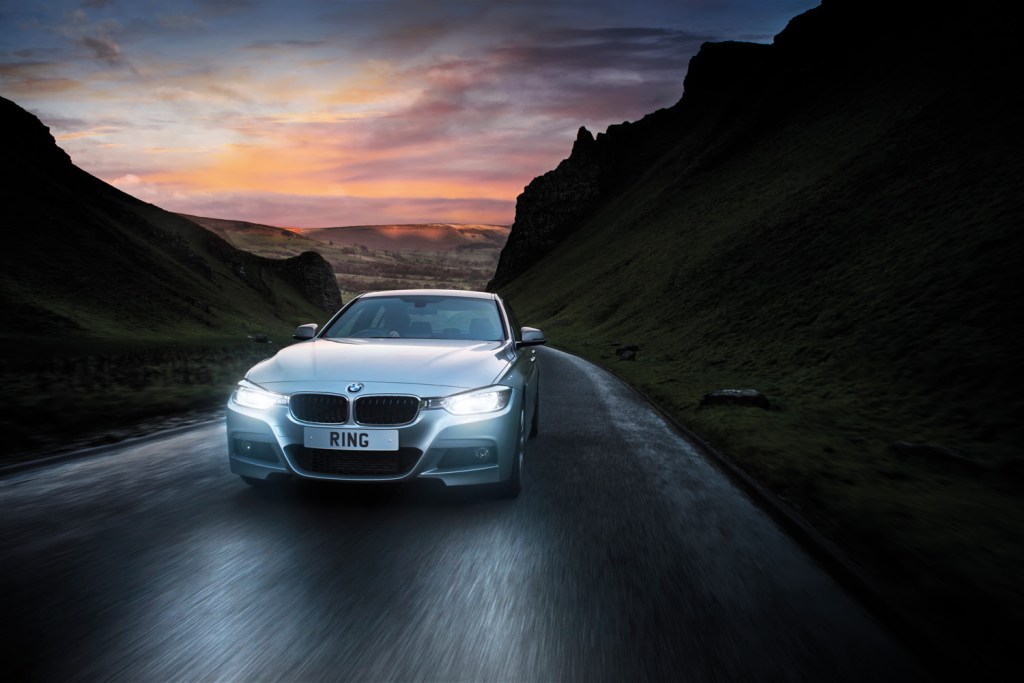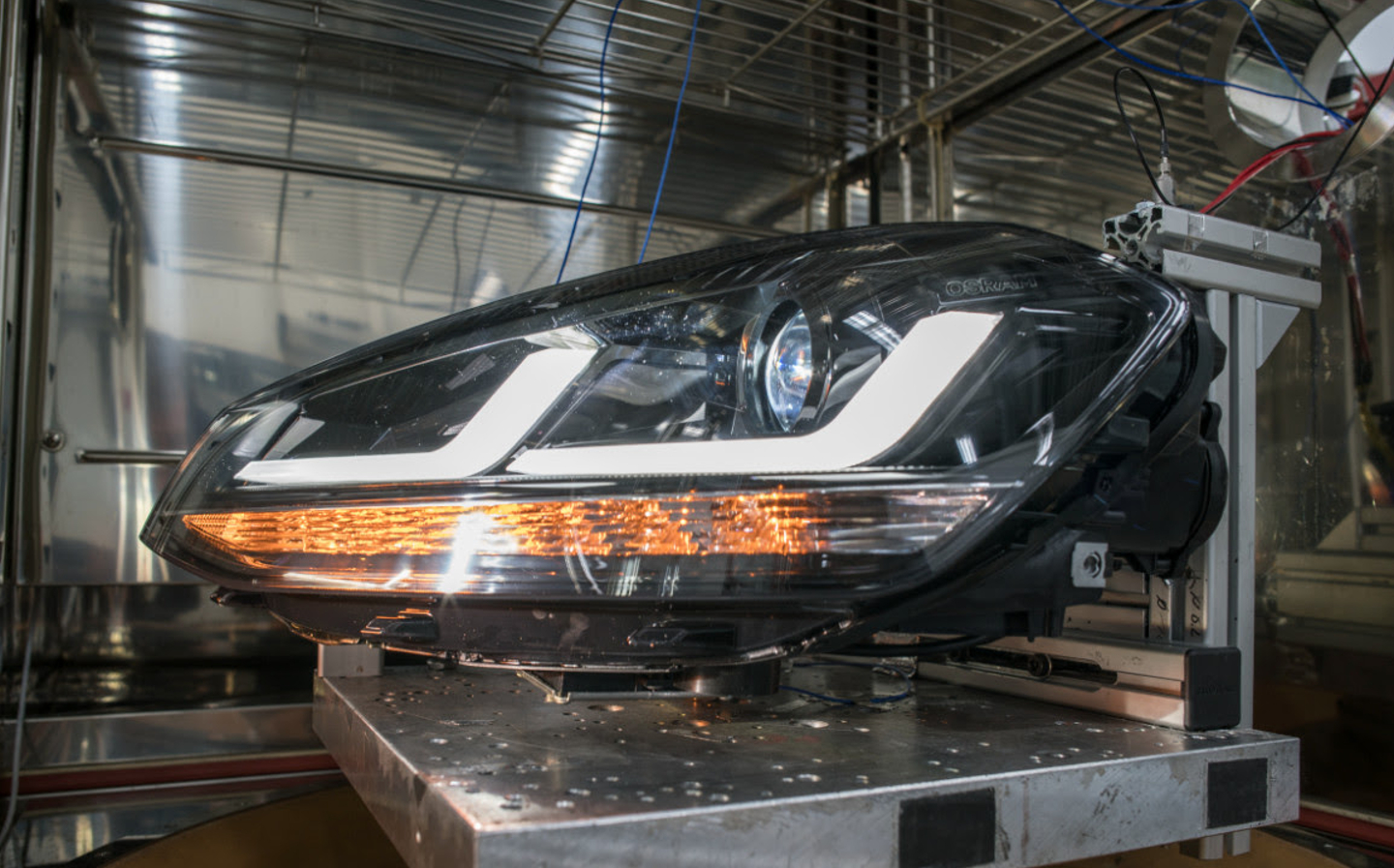'Many' aftermarket headlight bulbs available in UK found to be illegal
They risk dazzling drivers and overheating wires, according to leading supplier
A leading supplier of car lighting and electrics has warned that many headlight bulbs currently on the market in the UK are not compliant with legislation, and are therefore not road legal.
Ring Automotive, which produces 30 million vehicle bulbs worldwide per year, said that tests of aftermarket supplier products at its UK lighting laboratory revealed an alarming number that are either too bright or too dim, or otherwise don’t meet European safety standards.
Thirty-three bulbs from five manufacturers were tested, with sixteen found to be illegal — almost half. Ring confirmed that none of those included in the tests use LED technology, as all retro-fit LED bulbs are currently illegal for road use in the UK.
Ring declined to name the brands of bulbs included in its tests but claimed that there were “many incidents” of bulbs not complying with ECE Regulation 37, which details exact specifications for maximum and minimum light output (lumens), the angle and spread of light onto the road (filament geometry), as well as the voltage and wattage levels.
The company said it is illegal to fit light assemblies that carry their own performance approval numbers with bulbs that are not E approved (1989 Road Vehicle Lighting Regulations). In addition, it is also illegal to stock or offer these bulbs for sale in the UK (Filament Lamps for Vehicles (Safety) Regulation 1982). Despite this, many products it managed to purchase in the UK didn’t meet the standards.
Too bright, too dangerous
Bulbs sourced from one company all exceeded the maximum wattage and lumens (brightness) levels “by a considerable margin”, according to Ring. Another firm produces bulbs that were more than 26 per cent and 49 per cent above maximum outputs for lumen and wattage respectively, according to the tests.
At these levels, the bulbs could cause overheating to a vehicle‘s wiring, Ring said. One bulb tested resulted in the chrome end cap showing signs of deterioration after only a few minutes of use.
In photometry tests of one supplier, four of the ten samples failed with brightness that was beyond the legal maximum. Ring tested a number of the same type of bulb from each manufacturer, “to ensure their performance or any issues that occur are constant, and not just a one off.”
But it wasn’t just bulbs with excessive brightness that would fall foul of the law — all of the examples from one supplier had brightness levels below the minimum standard, according to Ring, with a rating of 29.1 lumens versus the required 40 lumens.

In other instances, bulbs didn’t meet the amber colour requirement, and many had a poor beam pattern, which Ring said would directly impact the driver’s view of the road.
Andy Gratton, managing director of Ring Automotive, said his firm’s laboratory in Leeds regularly tests ranges of halogen and auxiliary bulbs sold in the automotive industry.
“As a market leading manufacturer, we have a responsibility to the aftermarket to ensure that distributors and technicians are clear and confident that the bulbs they sell, and subsequently fit to consumers vehicles, are safe, compliant and produced to the highest quality standards,” he said.
“These are safety critical products and, as such, regulation compliance is not optional.”
Gratton believes there is an increasing awareness among road users of the impact of poor quality vehicle lighting, and said Ring’s objective is “to continue to raise awareness of the causes of issues, such as low visibility and, at the opposite end of the spectrum, glare.”
He also highlighted the wider impact of the issue on the automotive aftermarket.
“Organisations such as the IAAF (Independent Automotive Aftermarket Federation) have spent many years working with motor factors and garages to build trust among motorists to have their repairs done in the aftermarket, rather than at a main dealer,” he said, arguing that this important work would be undone should drivers be caught by police using illegal headlight bulbs fitted by garages.
“Ultimately, it’s the industry that’s negatively impacted from these poor manufacturing processes and lack of quality control. In the end, we all have a responsibility for ensuring that the road user is safe.”
What can be done?
Gratton said the ideal solution would be for mechanics to review every bulb at an MOT or service, and weed out the poor quality bulbs, but believes this is unrealistic in terms of how much time they have to service cars, and that “ultimately mechanics are not best placed to state what is legal or not.”
Increased spot examinations by the police would “help focus motorists attention around the need to have their vehicles roadworthy,” he continued, while Trading Standards can also step in on a case-by case basis.
However, the most realistic course of action, Gratton argued, is to educate motorists and suppliers.
“Motorists need to understand the dangers of poor quality bulbs and demand from retailers and garages that they only fit reputable bulbs from an original equipment manufacturer and associated brands. This will guarantee quality, as well making sure the bulbs are completely road legal.
“Getting the distributors to only trust certain brands would reduce the number of poor quality bulbs entering the market.”
He concluded: “There really is no excuse, given the relative cost, for road users to be subjected to a non-compliant product. We remain committed to improving road user safety in the UK and will ensure that the issues identified follow the correct reporting procedure.”
Related articles
- If you were interested in the story about many car headlight bulbs on sale not meeting legal requirements, you might also like to find out why aftermarket LED bulbs are not legal in the UK
- Another study, by the RAC, found that many drivers believe car headlights are becoming too bright
- If one of your bulbs needs to be replaced (with a legal product), check out our Haynes guide how to change a headlight bulb
Latest articles
- Should I buy a diesel car in 2025?
- F1 2025 calendar and race reports: The new Formula One season as it happens
- Zeekr 7X AWD 2025 review: A fast, spacious and high tech premium SUV — but someone call the chassis chief
- Denza Z9GT 2025 review: Flawed but sleek 1,062bhp shooting brake from BYD’s luxury arm
- Extended test: 2024 Renault Scenic E-Tech review
- Best-selling cars 2025: The UK’s ten most popular models of the year so far
- Audi A6 Avant 2025 review: Trusty executive estate ticks expected boxes, and there’s still a diesel option
- Keir Starmer eases pressure on carmakers to sell EVs in response to ‘global economic headwinds’
- Ferrari 12Cilindri Spider review: Heady blend of traditional and futuristic becomes even more intoxicating after lid is removed














